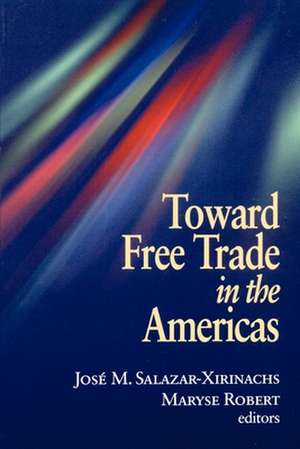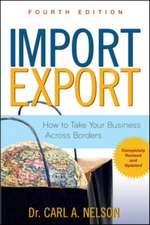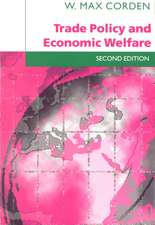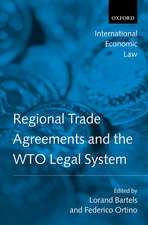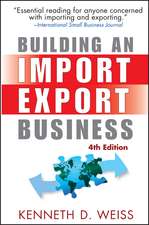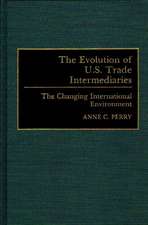Toward Free Trade in the Americas
Editat de José Manuel Salazar-Xirinachs, Maryse Roberten Limba Engleză Paperback – mar 2001
In the past 15 years, the nations of the Western Hemisphere have staged a remarkable revolution—in the way they trade with their neighbors. First, after decades of restrictive import policies, several countries began to liberalize their trade and investment regimes. Then, beginning a decade ago, numerous bilateral and sub-regional trade agreements were achieved, to serve as vital complements to domestic reforms and to foster trade flows among member countries. At the Second Summit of the Americas in 1998, negotiations among 34 democracies were launched to establish the Free Trade Area of the Americas (FTAA). This report takes stock of the remarkable progress to date in the development of free trade in the Western Hemisphere. It examines trade flows between countries in the same regional groupings and between members of different sub-regional arrangements. The report describes the main characteristics of the trade arrangements signed between countries of the Hemisphere and explores the development of trade rules in these arrangements. Finally, the report details recent advances in the construction of the FTAA.
Preț: 234.39 lei
Nou
Puncte Express: 352
Preț estimativ în valută:
44.86€ • 48.75$ • 37.71£
44.86€ • 48.75$ • 37.71£
Carte tipărită la comandă
Livrare economică 21 aprilie-05 mai
Preluare comenzi: 021 569.72.76
Specificații
ISBN-13: 9780815700890
ISBN-10: 081570089X
Pagini: 352
Ilustrații: illustrations
Dimensiuni: 152 x 229 x 23 mm
Greutate: 0.48 kg
Ediția:New.
Editura: Brookings Institution Press
Colecția Brookings Institution Press
ISBN-10: 081570089X
Pagini: 352
Ilustrații: illustrations
Dimensiuni: 152 x 229 x 23 mm
Greutate: 0.48 kg
Ediția:New.
Editura: Brookings Institution Press
Colecția Brookings Institution Press
Notă biografică
José Manuel Salazar-Xirinachs is the chief trade advisor at the Organization of American States. Maryse Robert is a senior trade specialist with the Trade Unit of the OAS.
Descriere
A Brookings Institution Press and the Organization of American States publication
In the past 15 years, the nations of the Western Hemisphere have staged a remarkable revolution—in the way they trade with their neighbors. First, after decades of restrictive import policies, several countries began to liberalize their trade and investment regimes. Then, beginning a decade ago, numerous bilateral and sub-regional trade agreements were achieved, to serve as vital complements to domestic reforms and to foster trade flows among member countries. At the Second Summit of the Americas in 1998, negotiations among 34 democracies were launched to establish the Free Trade Area of the Americas (FTAA).
This report takes stock of the remarkable progress to date in the development of free trade in the Western Hemisphere. It examines trade flows between countries in the same regional groupings and between members of different sub-regional arrangements. The report describes the main characteristics of the trade arrangements signed between countries of the Hemisphere and explores the development of trade rules in these arrangements. Finally, the report details recent advances in the construction of the FTAA.
In the past 15 years, the nations of the Western Hemisphere have staged a remarkable revolution—in the way they trade with their neighbors. First, after decades of restrictive import policies, several countries began to liberalize their trade and investment regimes. Then, beginning a decade ago, numerous bilateral and sub-regional trade agreements were achieved, to serve as vital complements to domestic reforms and to foster trade flows among member countries. At the Second Summit of the Americas in 1998, negotiations among 34 democracies were launched to establish the Free Trade Area of the Americas (FTAA).
This report takes stock of the remarkable progress to date in the development of free trade in the Western Hemisphere. It examines trade flows between countries in the same regional groupings and between members of different sub-regional arrangements. The report describes the main characteristics of the trade arrangements signed between countries of the Hemisphere and explores the development of trade rules in these arrangements. Finally, the report details recent advances in the construction of the FTAA.
